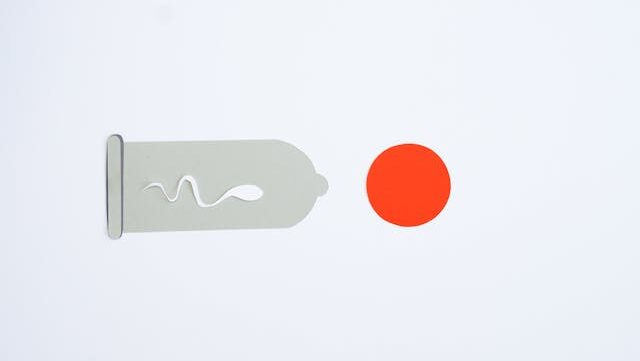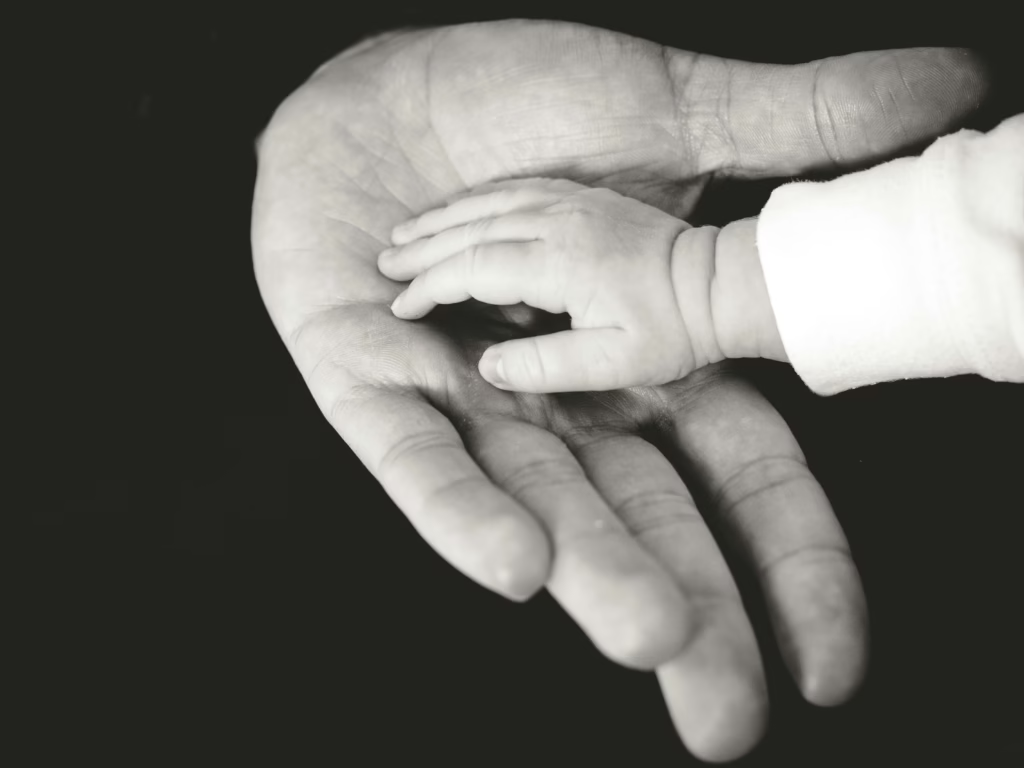Introduction
Did you know that only about 5–10% of women who apply to become egg donors are ultimately accepted? Genetic screening plays a crucial role in this selection process. For many individuals and couples struggling with infertility, egg donation offers a promising path to parenthood. However, the genetic health of donors significantly impacts the success and safety of this journey. Egg donation genetics involves comprehensive screening to ensure donors don’t carry genetic conditions that could affect the future child. Understanding which genetic issues might disqualify potential donors is essential for women considering this altruistic act. This article explores the top 10 genetic concerns that fertility clinics and egg donation agencies evaluate during the screening process.
What Is Egg Donation Genetics?
Egg donation genetics refers to the field of reproductive medicine focused on identifying, analyzing, and preventing the transmission of hereditary disorders through donated oocytes. It encompasses comprehensive genetic testing of potential egg donors to assess their chromosomal makeup and detect carrier status for various genetic conditions.
Genetic screening in egg donation has evolved dramatically over the past decade. Today’s advanced technologies allow fertility specialists to evaluate donors for hundreds of genetic conditions simultaneously, dramatically reducing the risk of passing hereditary disorders to offspring. This screening is fundamental to ensuring that children born through egg donation have the best possible start in life from a genetic health perspective.
The rigorous genetic assessment of egg donors goes far beyond basic health checks, utilizing sophisticated tools like expanded carrier screening (ECS), karyotyping, and in some cases, genomic sequencing to create a comprehensive genetic profile of each potential donor.
Why It Matters
The genetic screening of egg donors carries profound implications for all parties involved in the donation process. For intended parents, receiving eggs from a genetically screened donor significantly reduces the risk of having a child with preventable genetic disorders. According to research published in the Journal of Assisted Reproduction and Genetics, proper genetic screening of donors can reduce the risk of serious genetic conditions by up to 90% compared to unscreened donations.
For donors, genetic testing may uncover previously unknown health information about their own genetic makeup. This discovery can be life-changing, providing valuable health insights that might affect their own family planning decisions or preventive healthcare measures.
The impact of egg donation genetics extends to various family formations, including LGBTQ+ families, single parents by choice, and heterosexual couples with fertility challenges. Each family type may have different considerations regarding donor selection and genetic compatibility, particularly when one intended parent may also contribute genetic material.
The Process
The genetic screening process for egg donors follows a systematic approach to ensure thoroughness and accuracy:
Initial Genetic History Assessment
Detailed family medical history collection going back at least three generations
Identification of patterns suggesting hereditary conditions
Review of personal medical history for indicators of genetic concerns
Comprehensive Carrier Screening
Blood or saliva sample collection for DNA analysis
Testing for carrier status of 300+ recessive genetic disorders
Examination of common conditions like cystic fibrosis, spinal muscular atrophy, and Tay-Sachs disease
Advanced Genetic Analysis
Karyotyping to detect chromosomal abnormalities
Mitochondrial DNA assessment in some cases
Additional targeted testing based on ethnic background or family history findings
Results Interpretation and Counseling
Professional genetic counseling to explain findings
Assessment of genetic compatibility with intended parents (if applicable)
Determination of eligibility based on established guidelines
This multi-step process typically takes 4–6 weeks to complete and forms a crucial component of the overall donor screening protocol, which also includes psychological evaluation, infectious disease testing, and fertility assessment.
Benefits and Considerations
The rigorous genetic screening in egg donation offers substantial benefits while raising important considerations for all parties involved.
Benefits:
Significantly reduced risk of genetic disorders in offspring
Identification of genetic conditions the donor may be unaware of
Peace of mind for recipient families regarding genetic health risks
Improved success rates in fertility treatments by eliminating known genetic barriers
Considerations:
Genetic testing may reveal unexpected information about a donor’s health
No screening process can guarantee the complete absence of genetic risks
The emotional impact of disqualification based on genetic findings can be significant
Balancing thorough screening with respecting genetic diversity and avoiding eugenics concerns
A 2021 study in Fertility and Sterility reported that among donors who were disqualified for genetic reasons, approximately 65% were previously unaware of their carrier status for various conditions, highlighting both the educational benefit and the potential psychological impact of such discoveries.
Common Misconceptions
Myth 1: Only serious genetic diseases are screened for in egg donation
Reality: Modern genetic screening for egg donors evaluates hundreds of conditions ranging from severe life-threatening disorders to milder conditions with variable expressivity. The comprehensive nature of current screening goes far beyond just “serious” diseases.
Myth 2: Being a carrier for a genetic condition always disqualifies you as an egg donor
Reality: Many egg donors are carriers for recessive genetic conditions. Disqualification typically occurs only when the condition is particularly severe or when matched with a recipient who carries the same condition. Being a carrier for most recessive conditions doesn’t automatically disqualify a donor.
Myth 3: Genetic screening can identify all possible genetic risks
Reality: Despite significant advances, genetic screening cannot detect all possible genetic conditions. Current technology focuses on known mutations and cannot predict spontaneous mutations or conditions with complex inheritance patterns. Additionally, many conditions have environmental triggers that cannot be predicted through genetic testing alone.
Myth 4: Egg donation genetic screening eliminates all birth defect risks
Reality: While genetic screening significantly reduces certain risks, approximately 3–4% of all births have some form of birth defect regardless of conception method. Many developmental issues arise from complex interactions between genetics and environment that cannot be fully predicted through screening.
Myth 5: All egg donation programs use the same genetic screening standards
Reality: Genetic screening protocols vary significantly between clinics and agencies. While reputable programs follow guidelines from organizations like the American Society for Reproductive Medicine, there is considerable variation in which tests are considered mandatory versus optional.
10 Genetic Issues That May Disqualify You from Becoming an Egg Donor
Chromosomal Abnormalities: Structural or numerical changes in chromosomes, such as translocations or inversions, may disqualify potential donors. These abnormalities, while sometimes not affecting the donor’s health, can significantly impact embryo development and pregnancy outcomes.
Dominant Genetic Disorders: Conditions like Huntington’s disease, Marfan syndrome, or neurofibromatosis are caused by a single gene mutation that has a 50% chance of being passed to offspring.
Carrier Status for Severe Recessive Disorders: Being a carrier for certain severe conditions like Tay-Sachs disease, cystic fibrosis, or spinal muscular atrophy may disqualify donors.
Family History of Early-Onset Cancer: Especially those linked to BRCA1/2 mutations or Lynch syndrome.
Hereditary Cardiac Conditions: Long QT syndrome, hypertrophic cardiomyopathy, or familial hypercholesterolemia.
Neurodevelopmental and Psychiatric Genetic Predispositions: Bipolar disorder, schizophrenia, or severe autism spectrum disorders.
Mitochondrial Disorders: These are maternally inherited and have a 100% transmission rate.
Multiple Genetic Risk Factors: Even moderate conditions may collectively lead to exclusion.
Autoimmune Disease Predisposition: Multiple sclerosis, rheumatoid arthritis, or type 1 diabetes in first-degree relatives.
Unknown Genetic Variants of Uncertain Significance: When their clinical importance is unclear, programs may disqualify out of caution.
Legal and Ethical Aspects
The genetic screening of egg donors operates within complex legal and ethical frameworks that vary significantly by location. In the United States, the FDA regulates donor screening for infectious diseases, but genetic screening requirements are primarily guided by professional society recommendations rather than federal law.
States like California, New York, and Colorado have more comprehensive regulations regarding egg donation genetic screening, while others provide minimal oversight. Internationally, countries like the UK, Australia, and Canada have nationalized standards for genetic testing of gamete donors that may differ substantially from U.S. practices.
Ethically, egg donation genetics raises important questions about genetic determinism, the value placed on certain genetic traits versus others, and the risk of creating a form of modern eugenics. The balance between reducing suffering from preventable genetic conditions and respecting genetic diversity remains a tension within the field.
Informed consent plays a crucial role in the ethical implementation of genetic screening for egg donors. Donors must fully understand what is being tested, how their genetic information will be used, and the potential personal implications of discovering unexpected genetic findings.
Support and Resources
Genetic Counselors: NSGC.org
Egg Donor Support Organizations: We Are Egg Donors
Reputable Fertility Clinics: ASRM- or SART-affiliated
Educational Resources: Genetic Alliance
Mental Health Support: Many fertility clinics provide access to counselors specializing in the emotional aspects of genetic screening and potential disqualification.
If you’re considering becoming an egg donor, researching clinics’ specific genetic screening protocols before application can help you prepare for the process and set appropriate expectations.
Conclusion
Egg donation genetics represents a critical intersection of reproductive technology, genetic medicine, and bioethics. The 10 genetic issues that may disqualify potential egg donors reflect the careful balance between enabling family formation and preventing unnecessary suffering from preventable genetic conditions. While genetic screening may seem like a barrier to donation, it ultimately serves to protect all parties involved—donors, recipients, and most importantly, the children born through these technologies. As genetic testing technology continues to advance, the landscape of egg donation screening will evolve, potentially becoming more nuanced and personalized. For women considering egg donation, understanding these genetic considerations provides essential preparation for the screening process. Whatever your genetic makeup, your interest in helping others build families demonstrates a remarkable spirit of generosity that deserves respect and appreciation.
Frequently Asked Questions
Can I be an egg donor if I carry a gene for a recessive condition?
In many cases, yes. Being a carrier for most recessive conditions doesn’t automatically disqualify you. Disqualification typically occurs only for severe conditions or when matched with recipients who carry the same condition. Each fertility clinic has specific policies regarding which carrier statuses are acceptable.
Will egg donation genetic screening tell me about my own health risks?
Potentially, yes. Genetic screening may reveal information about your own health risks, particularly for dominant conditions or carrier status that might affect your future family planning. Most programs provide genetic counseling to help you understand any personal health implications of your screening results.
How much does Egg donation genetic screening cost?
The cost of genetic screening for egg donation typically ranges from $800-$2,500 depending on the comprehensiveness of the testing panel. These costs are almost always covered by the egg donation agency or recipient parents, not the donor herself.
If my sister has a genetic condition, will I automatically be disqualified from donating eggs?
Not necessarily. Your eligibility depends on the specific condition, its inheritance pattern, and whether you’ve been tested for it. Some conditions in family members may prompt additional testing rather than immediate disqualification.
Can I request copies of my genetic test results from the egg donation genetic process?
Yes, you’re entitled to receive copies of your own genetic test results. Some clinics provide them automatically, while others require a formal request. These results can be valuable for your own healthcare and family planning.
If I'm disqualified for genetic reasons, will this affect my ability to have my own healthy children?
Being disqualified as an egg donor doesn’t necessarily mean you can’t have healthy biological children. Many genetic concerns in egg donation involve recessive conditions that only cause problems when both parents carry the same mutation. A genetic counselor can help you understand the specific implications for your own family planning.







